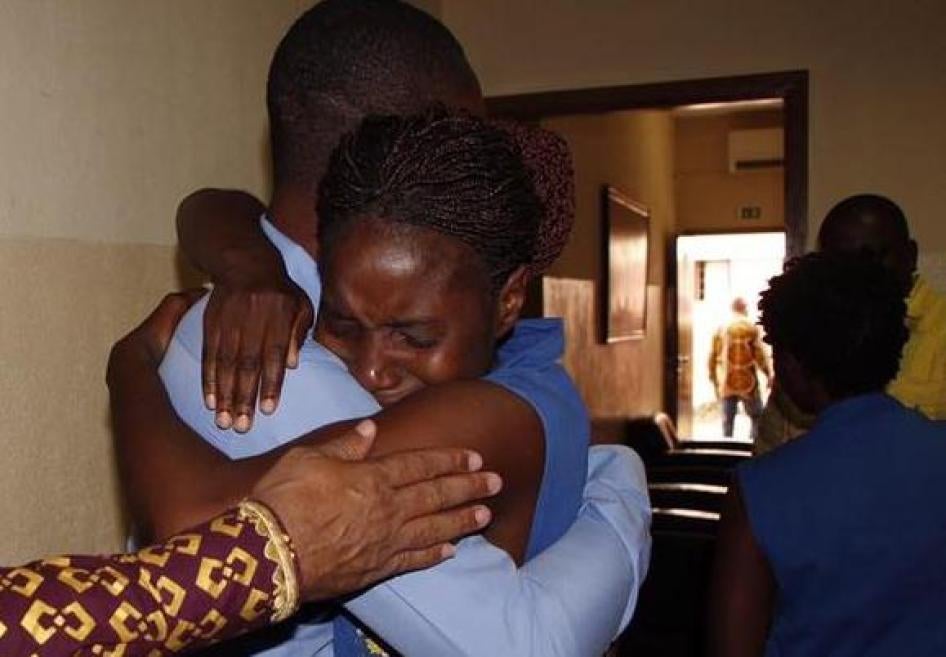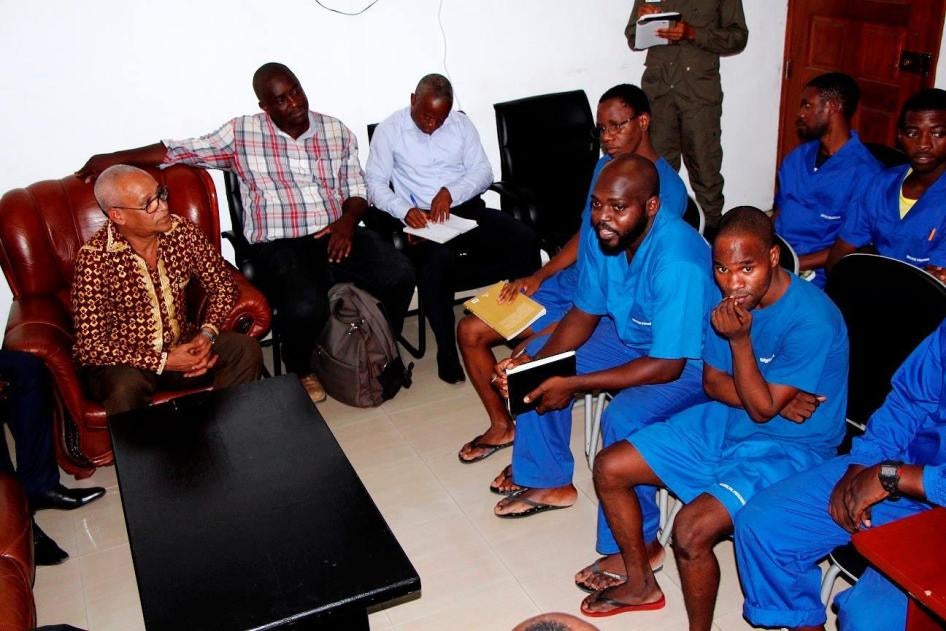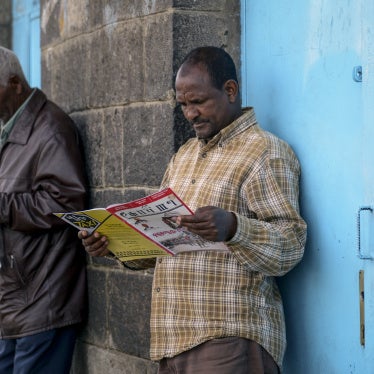It’s been a month since a court in Angola found 17 activists guilty of preparing a rebellion against the government and sentenced them to between two and eight years in prison. The activists should never have been jailed, and their trial only served as a reminder that the rights to free speech and peaceful assembly in Angola are still a mirage.
In April, a group of opposition party members visited the activists at Viana prison in the country’s capital, Luanda. Through photos captured during the rare moment and shared on social media, their friends and supporters had a chance to see them for the first time since the end of the trial. Rosa Conde and Laurinda Gouveia, the only two women in the group, exhibited brave smiles, but couldn’t hide their tears as they hugged the visitors. Their male colleagues held books – a reminder of why they are wrongly being punished.
The group of academics, students and artists were arrested last year, following book club meetings where peaceful protest and democracy were discussed, inspired by Gene Sharp’s book “From Dictatorship to Democracy.” They were initially charged with crimes of “preparatory acts of rebellion” and “plotting against the president and state institutions,” although the latter charge was dropped in the final stages of the trial when a new charge of “criminal conspiracy” was introduced. No new evidence was presented to sustain the charge and defense lawyers were given no opportunity to contest it.
Lawyers have appealed the conviction, arguing it was unconstitutional and violated the activists’ fundamental rights, but it is likely to take several days or even weeks before there is a decision.
As they await a decision, the activists are confronted with the poor conditions in Angola’s jails. Overcrowded cells, lack of potable drinking water and violence are just some of the daily challenges many prisoners in Angola face. The Angolan government says it is building 11 new jails to accommodate the estimated 24,000 inmates distributed among 40 prisons across the country. But new prisons do not tackle the main reasons for the overcrowding and poor conditions – the large numbers of arbitrary arrests, prolonged pre-trial detention, and delayed court proceedings.
Perhaps the jailing of the activists can help shine a spotlight on the poor prison conditions, though that does feel like trying to find a silver lining to a very dark cloud hanging over respect for human rights in Angola.










